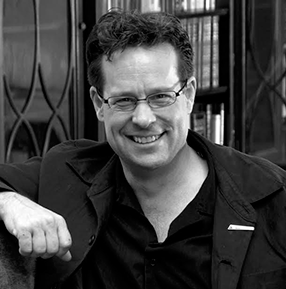Graves
In the year of providence, in the year of vast greenery, in the rainy season,
when the creeks tore through the mountainside and flooded the fields,
when the rains cut great black gouges in the hill behind the church
so the bones poked through where graves once were—
In the chaotic days, in the days of mess and brilliance, in the scatter
of bones, of coffin splinter and bits of cloth where we scavenged
among the decayed in the afternoon mists—such treasures we
discovered, coins with faces no one knew, a crucifix golden in the sun,
a ring and a brooch. We were children and wild, enjoyed the muck and loam
until the old priest waved his shotgun in the air and we scattered, laughing.
And then such a silence while we hid among the roots and bones
of the ancient dead. I have never been happier than that.
+
I wrote those lines three years ago, imagining decay I’d never see,
though perhaps you have lived something like it where you are,
hundreds of years from now, when I have been forgotten.
In that iteration, they are my own bones poking from the loam
behind the wrecked churchyard of my imagination. And you, whom I’ll
never know, pick happily through them for coins. I was thinking about this poem
at the grocery store, by the refrigerated meats, I was thinking of my distant future,
and you who live there, when an old man fell suddenly to the floor.
He lay there beside a broken mayonnaise jar. When I knew he wasn’t hurt,
I helped him to the bathroom, where I dabbed at his shirt
with one of those brown paper towels that come on endless rolls.
He was sweating. He smelled of wine. He offered me $5 for my trouble.
I didn’t want his money, but I took it just to make him happy.
Copyright © 2025 by Kevin Prufer. Originally published in Poem-a-Day on October 14, 2025, by the Academy of American Poets.
“I’m interested in the way poems move through time. I began with a vision of the future imagined by the poem’s speaker, who only reveals himself years later as the creator of that vision. But to whom, I wonder, is he offering this future vision? In any case, he inhabits two graves: one is the future graveyard of his imagination and the other is the refrigerated meats section of the grocery store, which is also, to his mind, a kind of graveyard. In both cases, money is offered in exchange for attention to the dead or the soon-to-be dead.”
—Kevin Prufer

